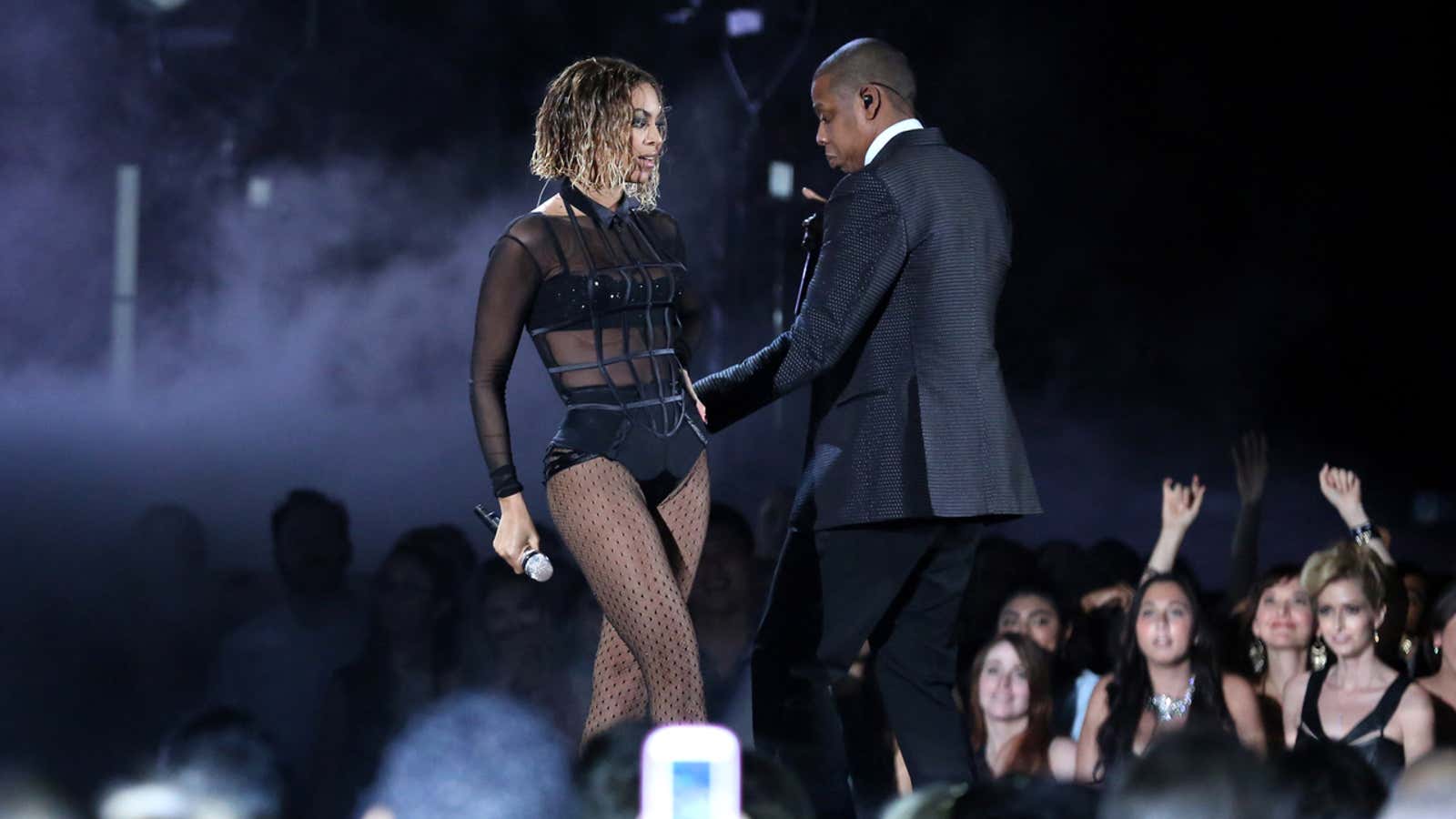At the end of the short montage announcing their “On The Run II” tour, Jay-Z and Beyoncé are seated on a motorbike adorned with a bull’s long-horned skull.
The slow-motion clip—which also provides a still image for much of the tour’s promotional materials—is a direct nod to the poster of Touki Bouki, a classic Senegalese film from 1973. Cultural critic and creative entrepreneur Suede was one of the first to catch the reference.
Director Djibril Diop Mambéty’s style is both documentary-like, portraying urban grit and traditional rituals, and colorful and flamboyant, as New Yorker film critic Richard Brody pointed out in this 2015 commentary. As herder Mory and student Anta plot their escape to Paris, they devise an over-the-top plan that brings satirical storytelling and aesthetically rich visual elements to the film—much like the styling of recent Jay-Z and Beyoncé music videos.
Beyoncé in particular, regularly looks to the African continent for inspiration. For 2011’s “Run The World (Girls),” she learned Pantsula, a dance originating in the townships of South Africa during apartheid, and invited young Mozambican dancers to join her in the video. Her 2016 visual album Lemonade borrows even more from Africa through costumes and folklore drawn from the continent, and via collaborations with African artists. At the 2017 Grammys, a pregnant Beyoncé channeled the Nigerian goddess Oshun during her performance of a medley of songs from Lemonade.
There have been more questionable homages to Africa, like the push party for the Carter twins in May last year—a “push party” is a sort of adult version of a baby shower, focused more on the mom-to-be than the baby—which looked a little gaudy and a whole lot of fun. And given that the Carters regular seek inspiration from Africa, it will probably disappoint fans that, as with the first On the Run tour, they won’t play a single African city during On the Run II.
